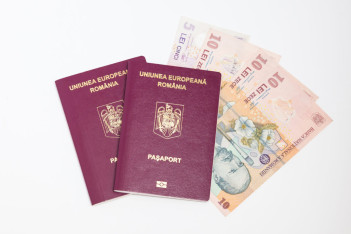lawyer, 23 years of experience in enforcement.
According to clause 1 of Art. 572 of the Civil Code of Ukraine of January 16, 2003 No. 435-IV, as amended (hereinafter referred to as the CCU), through a pledge, the creditor (pledgee) has the right, in the event of non-fulfillment by the debtor (pledger) of his part of the contract, to receive compensation from the property to which he is entitled by agreement primarily before other creditors of the debtor, unless otherwise established by law (right of lien).
Pledge arises on the basis of a contract, law or court decision (Part 1 of Article 574 of the Civil Code).
Art. 20 of the Law of Ukraine dated October 2, 1992 No. 2654-XII "On Pledge", as amended, the pledge holder has the right to request the establishment of a mortgage on the subject of the pledge, if the obligation is not fulfilled within the due date. related to the pledge is not achieved, unless otherwise provided by law or contract.
The case of foreclosure on the subject of collateral is initiated by a court decision, unless otherwise established by contract or law (clause 1 of article 590 of the CCU).
The only legislative act that regulates relations in the field of real estate (mortgages) is the Law of Ukraine dated June 5, 2003 "On Mortgages" as amended (hereinafter - Law No. 898).
Art. Pursuant to Law No. 898, foreclosure on the subject of a mortgage is opened by a court decision, a notary's signature on a mortgage document, or a mutual agreement to fulfill the mortgagee's requirements.
At the same time, Art. Article 36 of Law No. 898 recognizes that a clause on the satisfaction of the creditor's requirements or a corresponding clause to a credit agreement similar in its legal consequences to this agreement can be, in particular, the transfer of ownership of the creditor's object to the creditor in order to fulfill the main obligation in accordance with the procedure established by Art. 37 of Law No. 898.
The legal basis for the regulation of encumbrances on movable property is determined by the Law of Ukraine dated November 18, 2003 (No. 1255-IV "On securing creditors' claims and accounting for encumbrances" as amended (hereinafter - Law No. 1255).
Art. Law No. 1255, the application of a collateral encumbrance is carried out on the basis of a court order, a written notarial paper for execution in the manner specified by law, or without a court order in accordance with Law No. 1255.
In addition, extrajudicial methods of collecting fees from the subject of the pledge are, in particular:
- - transfer of movable property, which is the subject of a mortgage encumbrance, after which the encumbrancer's property is transferred to the subject of the encumbrance for the fulfillment of the obligation related to the encumbrance, in the manner determined by Law No. 1255 (Article 26 of Law No. 1255).
Taxation of personal income is regulated by Chapter "IV" of the Tax Code of Ukraine, which entered into force on 02.12.2010, No. 2755-VI as amended (hereinafter - the Code) in accordance with Clause 164.2. .4 clause 164.2 of Art. 164 of the Code, a part of the income from transactions with property, which is included in the total monthly (annual) taxable income of the payer of the personal income tax, is responsible, the total income is determined according to the rules of Art. 172-173 of the Code.
Thus, the procedure for taxation of real estate exchange operations is regulated by Art. 172 of the Code in accordance with clause 172.1, which defines the income received by the taxpayer from the sale (exchange) of a residential building, apartment or part thereof, room, garden (cottage) house (including unfinished construction of this type). The property also includes the land plot on which this type of object is located, as well as household facilities and buildings located on this land plot. 121 of the Land Code of Ukraine dated October 25, 2001 No. 2768-III in the wording may have different rules depending on its intended purpose, as well as in the case of a certain stay of property in the property of the taxpayer. more than three years, not taxable.
Clause 172.2 of Art. 172 of the Code, the income received by the taxpayer from the sale of more than one object of immovable property during the reporting tax year (except operations for the alienation of residential real estate objects of banks in the order of foreclosure under mortgage contracts). that provide credit in foreign currency), specified in p. Article 172.1 172 of the Code or release of property not specified in clause 172.1 of Art. 172 of the Code is taxed at a rate of 5 percent, this is determined by Article 167.2. 167 of the Code.
Taxation of operations on the sale or exchange of movable property is regulated by Art. Section 173 of the Code, specified in Clause 173.1 of Art. 173 of the Code, the taxpayer's income from the sale (exchange) of movable property during the reporting tax year is taxed at the rates determined by Article 167.2. 167 of the Code.
In addition, clause 173.2 of Article 173 of the Code is defined as an exception to the rules of the first part of Article 173. 173 of the Code does not tax the income received by the taxpayer from the sale (exchange) during the reporting (tax) year of one of the objects of movable property, for example car or motorcycle.
Income of the taxpayer for the tax year from the sale (exchange) of the second object of movable property is subject to taxation in accordance with Article 167.2. 167 of the Code. Income of the tax payer's tax year (paid during the reporting period) in relation to the third and subsequent objects of movable property is taxed at the rates determined by Article 167.1. 167 of the Code.
In accordance with clause 172.8 of Art. 172 and item 173.8 of Art. 173 of the Civil Code of Ukraine, sale and purchase means the transfer of ownership of both immovable and movable property, except for cases of inheritance and donation.
In addition, the second part of par. Clause 165.1 of Article 165 of the Code does not include in the total monthly (annual) taxable income of the taxpayer income received from the sale of mortgaged property, property of the taxpayer in the event that a financial institution forecloses on such property in connection with the taxpayer's failure to fulfill its obligations according to the contract, property purchased at the expense of credit (loans).
Taking into account the above, the transfer of the ownership of the pledged property to the bank by one natural person for the fulfillment of the main obligation under the contract is considered the sale of the property that is the subject of the pledge.
In addition, if the property pledged as a pledge was purchased with funds related to the taxpayer's non-repayment of a loan (loan), then the income received as a result of such acquisition is not included in the total monthly (annual) income of the taxpayer. . are not subject to personal income tax. If during the possession of the pledged property the conditions of the second paragraph of paragraph 2 are not observed. Clause 165.1 of Art. If the foreigner's income is taxed according to the rules of Art. 172 and 173 of the Code (except for the actions of banks regarding the alienation of residential property by foreclosure on mortgage contracts secured by a loan in foreign currency).
The legal service "Consultant" will select a lawyer or an attorney who will conduct a legal analysis of the situation, form an appropriate procedural document (application, statement of claim, petition, etc.), and also help in collecting the evidence base for the most effective resolution of the issue. Service specialists will accompany the process from the beginning to the execution of the court decision. They will also provide advice and help in solving such issues as: preparation of amicable settlement with the creditor, Protection from collections, Arrest for inviolability, removal of seizure from real estate and funds, Removal of attachment from real estate, bankruptcy of an individual, debt reduction, etc.




































